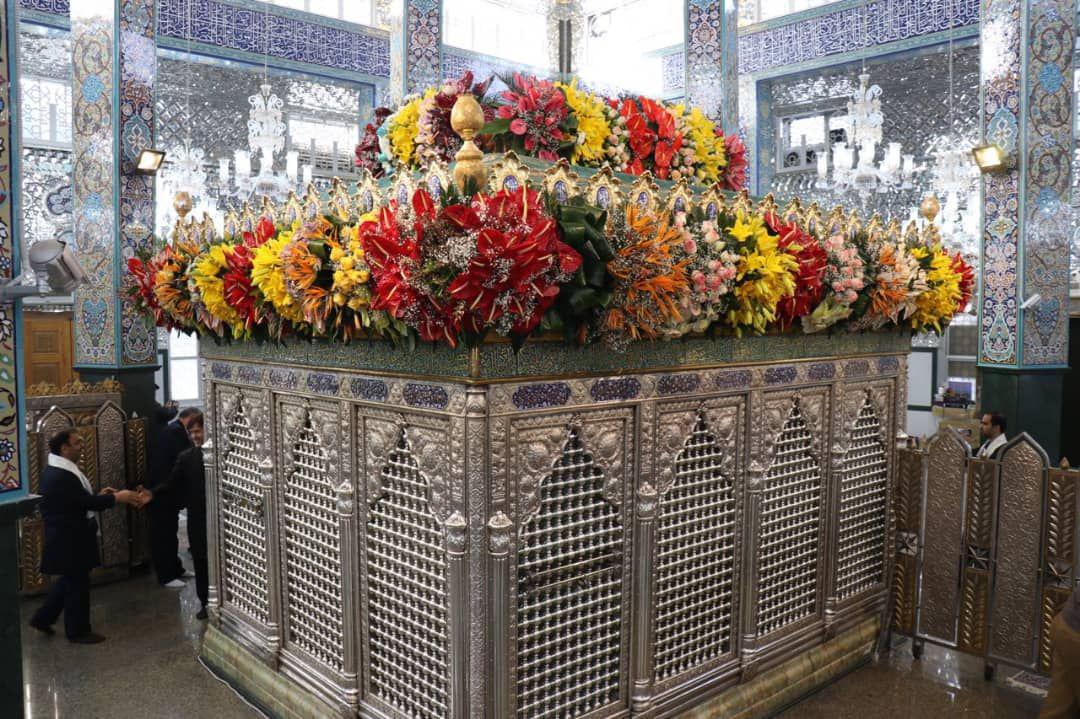AhlulBayt News Agency: Iranian people each year celebrate the birthday anniversary of Hazrat Zaynab on 5th Jamadi-ul-Awwal and mark the National Nurse Day on the same day on the memorial of the sacrifices of Hazrat Zaynab made after Karbala Battle.
Zaynab Bint Ali (AS), daughter of Ali ibn Abi Talib (AS) and Fatimah al-Zahra (AS), was the first granddaughter of the prophet Muhammad (PBUH). She was born in the holy city of Madina on 5th Jamadi-ul-Awwal in the 5th year of Hijrah/627 A.D.
According to several hadiths, the Prophet of Islam named her Zaynab. It is said that Gabriel brought this name from God to the Prophet. Zaynab literally means "a scenic tree with a beautiful fragrance". It is also a compound of two words "zayn" (adornment) and "ab" (father), meaning the adornment of the father.
Throughout her life, she was a paragon of virtue, and when circumstances demanded, she endured such terrible hardships that to this day, her selfless services to humanity and humanitarian values have earned her immortal fame. She nursed Islam back to life after the tragedy of Karbala.
Zaynab bint Ali (AS) was recognized among Muslim believers as being a devout and committed worshipper. Her worship was so sincere and distinguished that even her brother Imam Hussein ibn Ali (AS) asked her to pray for him in her night prayers.
In her character, she depicted the greatest qualities of those who raised her.
In “serenity and thoughtfulness,” she was like Hazrat Khadija, her grandmother (RA).
In “innocence and bashfulness,” she was like her mother Fatima Zahra (RA).
In “fluency and expressiveness,” she was like her father Ali (RA).
In “leniency and fortitude,” she was like her brother, Hassan (RA)
and in “courage and repose of the heart,” she was like Hussein (RA).
Her face reflected her father’s admiration and her grandfather’s esteem.
Hazrat Zaynab (AS) is best known for her role in the aftermath of the Battle of Karbala (680), in which her brother Hussein and his family and companions were massacred by the forces of Yazid.
In her lifetime, Hazrat Zaynab (as) had endured immense pain from witnessing her loved ones martyred before her eyes, but she never objected to the destiny decreed upon her by Allah. The completeness of her submission is monumental. The grief she expressed was an outpouring of her incredible humanity.
Today, women have to learn much from her example and leadership qualities. Her public role in the battle of Karbala has much to teach us both Muslim men and women. The only way for women in general and Muslim women, in particular, could pay respects to her sacrifice is by being inspired by her life to be courageous in the face of tyranny, patient in times of trouble, and submissive to the will of God. Hazrat Zaynab (as) the role model for the righteous will forever teach us all that when we undergo countless trials in our lives, we should see nothing but beauty in them.
The following is an excerpt of the sermon Hazrat Zaynab gave in the courtyard of Yazid’s palace in Damascus after they were brought as prisoners:
“Whatever you consider today, as a bounty would turn into reparation for tomorrow, whatever you have sent in advance would be received by you. Allah does not like oppression toward his servants. I complained to Him and put my trust upon Him; thus whatever deceit you want to practice, go ahead and do it; whatever endeavors and efforts you can make, try them.
By Allah you would never be able to remove our remembrance from the hearts [of the believers], nor would you ever be able to destroy our revelations; you would never reach our splendor and majesty; you would never be able to wash this ugly spot of tyranny from your [dress]; your opinion and suggestions are invalid and unstable.
The duration of your rein is very short, and your assembly would soon be scattered; on that day when the heavenly crier would announce: ‘Praise be upon the Lord of the Worlds, and are beginning- with prosperity and salvation-and our end-with martyrdom and blessing.
I beseech the Almighty to bestow upon them [Imam Hussein, his family (PBUH), and his loyal companions] His best recompense and may [He] increase their rewards. O You, Who is just and righteous toward us, and who is the most compassionate among all the compassionate ones, we put our trust only upon you.”
As Hazrat Zaynab took care of children during the Battle of Karbala and Imam Hussein's son Zayn al-Abidin, her birthday is celebrated as Nurse's Day in Iran.
Iranians in this day go to hospitals across the country and thank the nurses who are selflessly helping the patience. The Iranian nurses usually receive flowers or other gifts from the people.
Iranians also decorate the streets and offer others sweets on this glorious day.
The Leader of the Islamic Revolution Ayatollah Seyyed Ali Khamenei also receives a group of nurses and families of the martyrs of health on the occasion almost every year.
Imam Reza (AS) holy shrine in Mashhad is also a destination for Iranians on this great day.
/129
30 November 2022 - 05:10
News ID: 1327422

Iranian people each year celebrate the birthday anniversary of Hazrat Zaynab on 5th Jamadi-ul-Awwal and mark the National Nurse Day on the same day on the memorial of the sacrifices of Hazrat Zaynab made after Karbala Battle.
